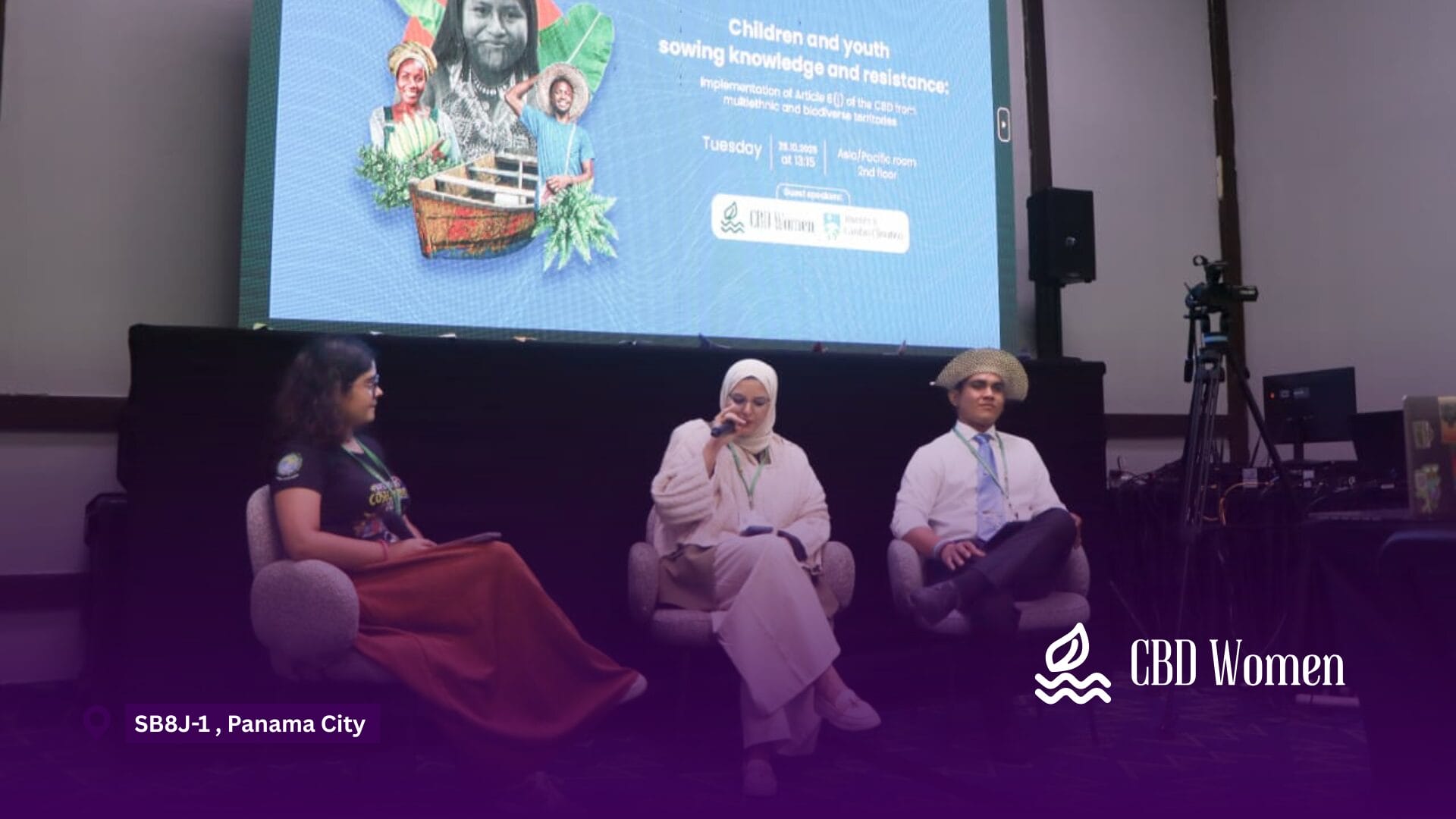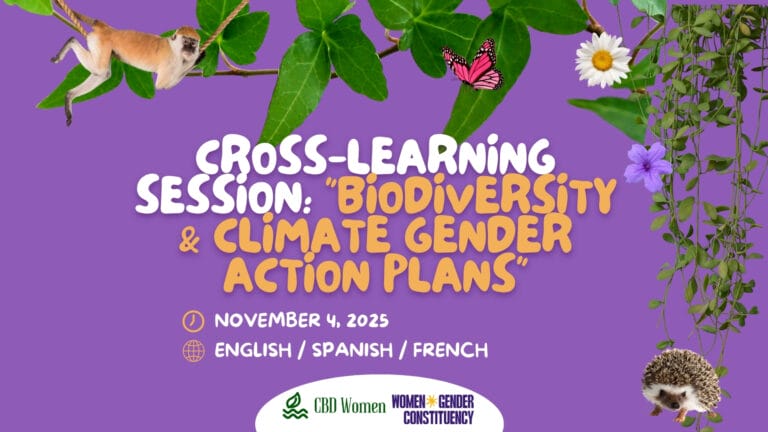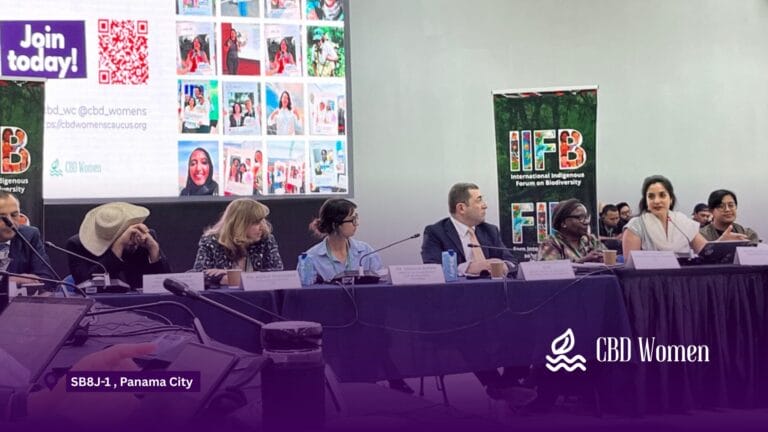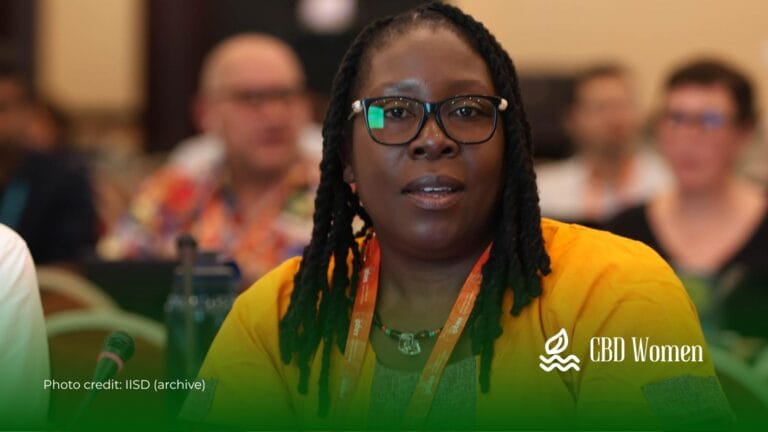By Ms. Fatima El-aaraby, Project officer at CBD Women’s Caucus
Disclaimer: The views expressed in this blog are those of the author and do not necessarily reflect the official position or opinions of the CBD Women’s Caucus
On October 28, 2025, during the first meeting of the Subsidiary Body on Article 8(j) (SB8J) held in Panama, youth and community leaders from across the world gathered for a side event titled “Children and Youth Sowing Knowledge and Resistance: Implementation of Article 8(j) of the CBD from Pluri-ethnic and Biodiverse Territories.” Organized by GYBN Colombia, the event provided a vital platform to highlight the perspectives of Indigenous, Afro-descendant, and local community women and youth in biodiversity conservation and the protection of traditional knowledge.
Let’s discover What Happened in the Recent Meetings!
The session began with opening remarks by Juliana and Ana María from GYBN Colombia, followed by reflections on youth-led movements advancing ecological justice. The discussion featured interventions from The CBD Women’s Caucus (CBD WC) represented by Ms. Fatima El Aaraby from Morocco. , Mr. Ameth Jhosue Rodríguez Pérez, a 17-year-old advocate from Jóvenes y Cambio Climático in Panama, and Ms. Juan Carlos Monterrey, Climate Envoy of Panama and Vice President of COP30, who provided the closing remarks for children and youth.
Throughout the talking circle, speakers shared concrete experiences in biodiversity conservation, the safeguarding of ancestral knowledge, and the importance of youth and women’s leadership in ensuring ecological and social justice. The dialogue also addressed the critical importance of Article 8(j) in recognizing and protecting the knowledge, innovations, and practices of Indigenous Peoples and local communities, emphasizing its connection with Target 22 & Target 23 of the Kunming-Montreal Global Biodiversity Framework, which calls for full, equitable, and meaningful participation of women, youth, Indigenous Peoples, and local communities.
Addressing Structural Barriers
The CBD Women’s Caucus highlighted that for Article 8(j) to be effectively implemented, biodiversity policy and action must be gender-responsive, human rights-based, and intergenerational. The Caucus stressed several structural barriers that continue to limit women’s and girls’ leadership and participation, including limited access to land and natural resources, underrepresentation in governance and decision-making, restricted access to direct funding opportunities, insufficient capacity-building to participate effectively in negotiations, and the absence of sex-disaggregated data.
Empowering Women through Capacity Building
To address these gaps, the CBD Women’s Caucus has developed a robust system of capacity-building, mentoring, and peer learning for women delegates. This includes pre-session briefings, simulation exercises, and daily coordination meetings during CBD negotiations to ensure that women’s voices are heard and their priorities integrated into official outcomes. For the Caucus, participation means not only being present but also having the power and resources to influence decisions and lead change.
Moving Forward
The side event reaffirmed that Women, children and youth from Indigenous people and local communities are essential actors in conserving biodiversity and protecting traditional knowledge. Implementing Article 8(j) effectively requires centering their voices, ensuring justice, and fostering collaboration across generations and territories. The CBD Women’s Caucus remains committed to working alongside these groups to ensure that biodiversity action is inclusive, equitable, and grounded in the lived realities of those who safeguard life on Earth every day.




